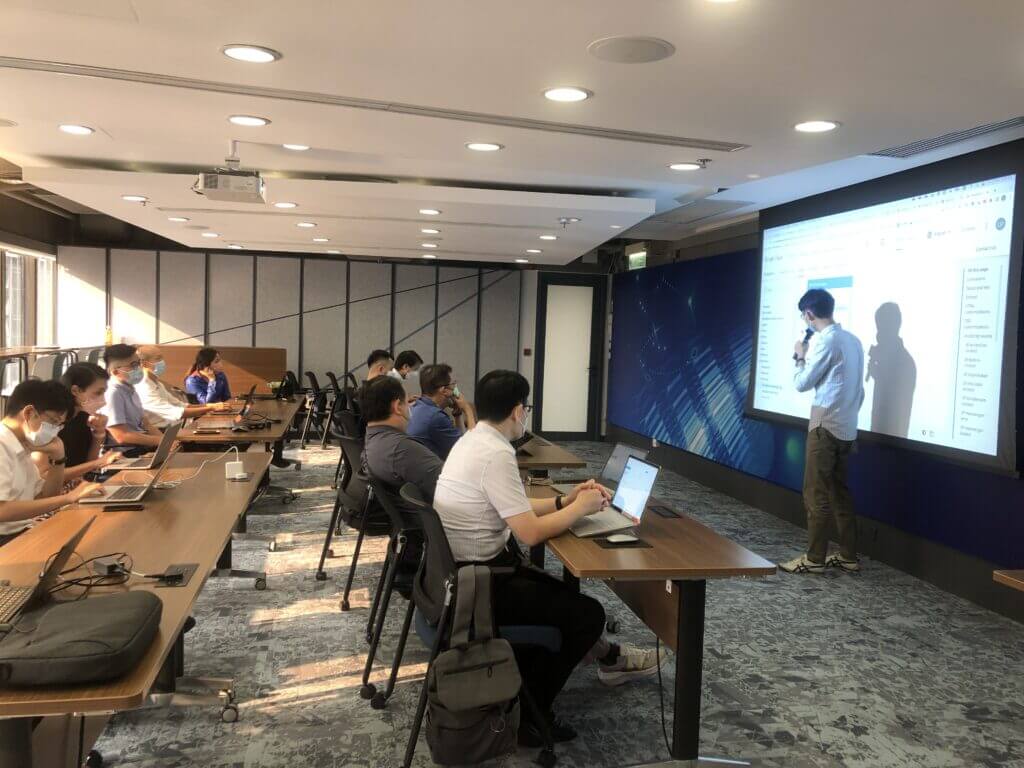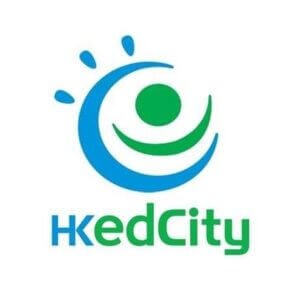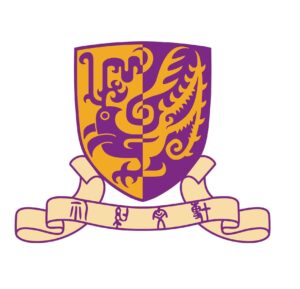Improve teachers' teaching effectiveness and unlock the infinite possibilities of AI-enabled education
AI/STEM on-campus teacher training
Vinci AI focuses on providing innovative AI STEM teacher training courses, aiming to enable teachers to master artificial intelligence technology and apply it in teaching practice. Our training courses cover a variety of practical topics, from basic AI knowledge to the application of efficient lesson preparation tools, helping teachers improve lesson preparation efficiency, design personalized learning experiences, and inspire students' creative thinking. We haveMore than 60 universities, primary and secondary schoolsConduct AI teacher training.
We divide AI tools into the following categories based on their functions and demonstrate their application value in teaching and learning scenarios.
Teacher training topics at a glance:
- Introduction to AI: Understanding and Application
- Prompt Tips: Communicate Effectively with AI
- AI in lesson preparation: improving efficiency and teaching quality
- Visual teaching: the application of AI tools in teaching material design
- AI Art and Creativity: Inspiring Creativity in the Classroom
- Application of AI tools in teaching evaluation
- Efficient information search and topic research
- AI Ethics: Challenges for Primary and Secondary Education
One-hour free teacher workshop
We regularly hold "one-hour free teacher workshops" and invite experts in the industry, including IT experts and university lecturers, to explain topics that are helpful to teachers in their teaching work. These workshops cover the following aspects:
- Application of AI in teachers’ work: Discuss how to use artificial intelligence technology to improve teaching efficiency and effectiveness, including personalized teaching, student interaction, and learning data analysis.
- AI’s impact on students’ career development: Analyze the importance of AI in future careers and provide relevant guidance to help teachers guide students to make career plans.
- Introduction to practical tools: Introduce and demonstrate various practical AI and IT tools that can help teachers improve efficiency in daily teaching and administrative work, such as AI writing tools, mathematical problem-solving platforms, generative AI creation tools, etc.
By participating in these workshops, teachers will be able to master the latest AI application knowledge and provide better support for students' future development. We look forward to the participation of every teacher and jointly explore the infinite possibilities of AI in education.
Welcome to contact us for more workshop information and registration details.

[Free Seminar] Let Excel become a teacher’s right-hand assistant – manage school resources easily and improve work efficiency!
Vinci AI Teacher Training Course
Introduction to AI: Understanding and Application
Topic Overview:
This topic aims to help teachers fully understand the basic concepts of artificial intelligence, technological development, and its application scenarios in education. We will introduce the core technologies of artificial intelligence, such as machine learning, natural language processing and deep learning, and explore how AI can be applied to teaching, learning, management and assessment.
Applicable AI tools:
This course introduces a series of intelligent assistants that can generate text, analyze data, and organize information. These tools can help teachers quickly generate lesson plans, design classroom activities, search for academic resources, and organize them into structured notes.
Application scenarios:
- Lesson preparation: quickly generate subject lesson plans and classroom activity designs.
- Student tutoring: Using AI to provide personalized learning recommendations.
- Teacher decision making: Improving teaching strategies through learning data analysis.
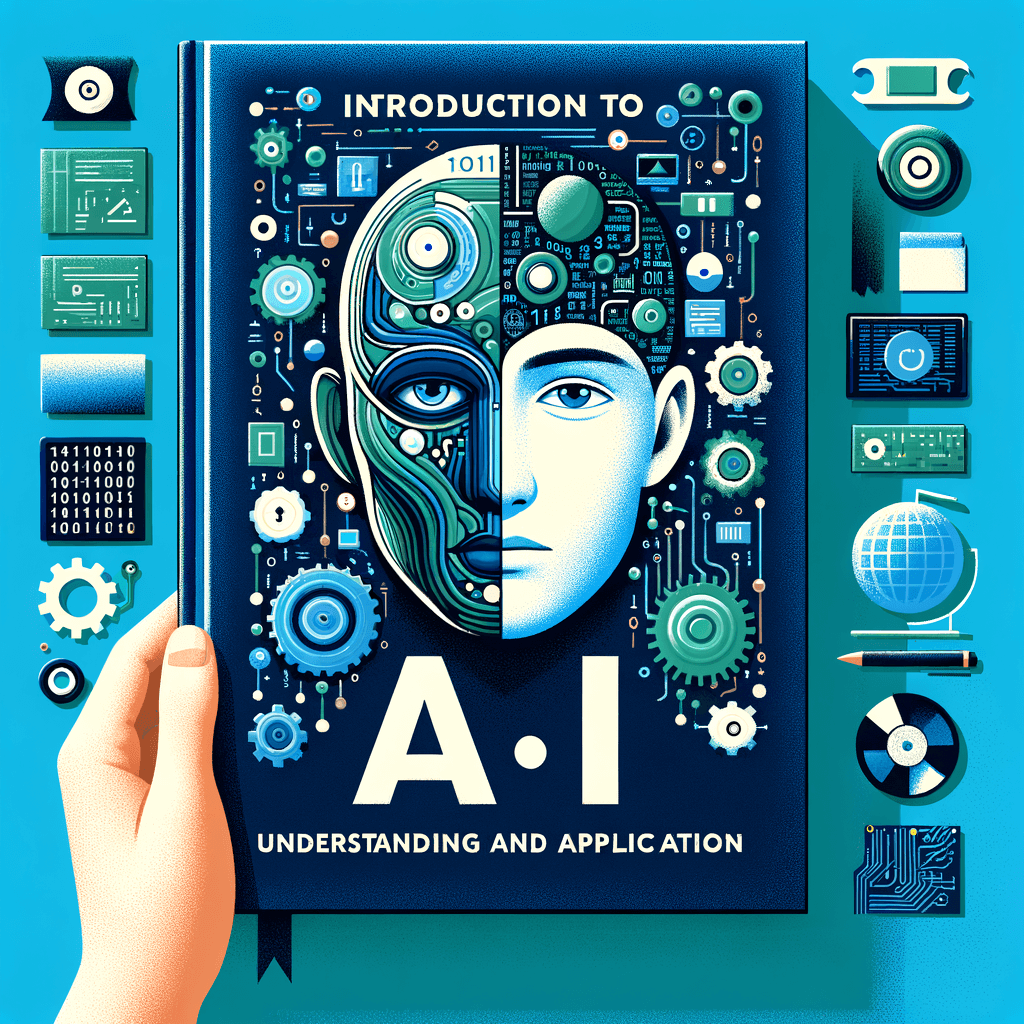
Prompt Tips: Communicate Effectively with AI
Topic Overview:
The performance of AI depends on the design of the prompt words. This topic will focus on teaching teachers how to write effective prompts in order to fully realize the potential of AI tools. Teachers will learn how to design clear, specific, and creative instructions so that AI can generate content that is more in line with expectations.
Applicable AI tools:
The course will guide teachers in using prompt word auxiliary tools, which can optimize prompt words, improve the accuracy of AI-generated content, and provide reference prompt word examples to help teachers learn to design effective instructions for different needs.
Application scenarios:
- Prompt word design: Design more accurate instructions for AI-generated teaching materials.
- Interdisciplinary applications: Use Prompt to generate mathematical formulas, literary examples, or scientific experiment plans.
- Creative inspiration: design classroom activities, story creation or learning games.

AI in lesson preparation: improving efficiency and teaching quality
Topic Overview:
Teachers' lesson preparation work can be greatly improved through AI technology. This topic will guide teachers on how to use intelligent text generation tools to quickly create lesson plans, classroom activity designs, and a variety of test questions, while improving classroom fun and student participation.
Applicable AI tools:
The course will introduce some AI tools that can generate high-quality texts. These tools can automatically generate teaching materials according to teachers' needs, personalize student feedback, and help polish and proofread content.
Application scenarios:
- Lesson preparation: Quickly generate class handouts, test questions and PPTs.
- Personalized learning: Design personalized learning tasks based on students' needs.
- Creative thinking: Using AI to inspire interdisciplinary teaching.
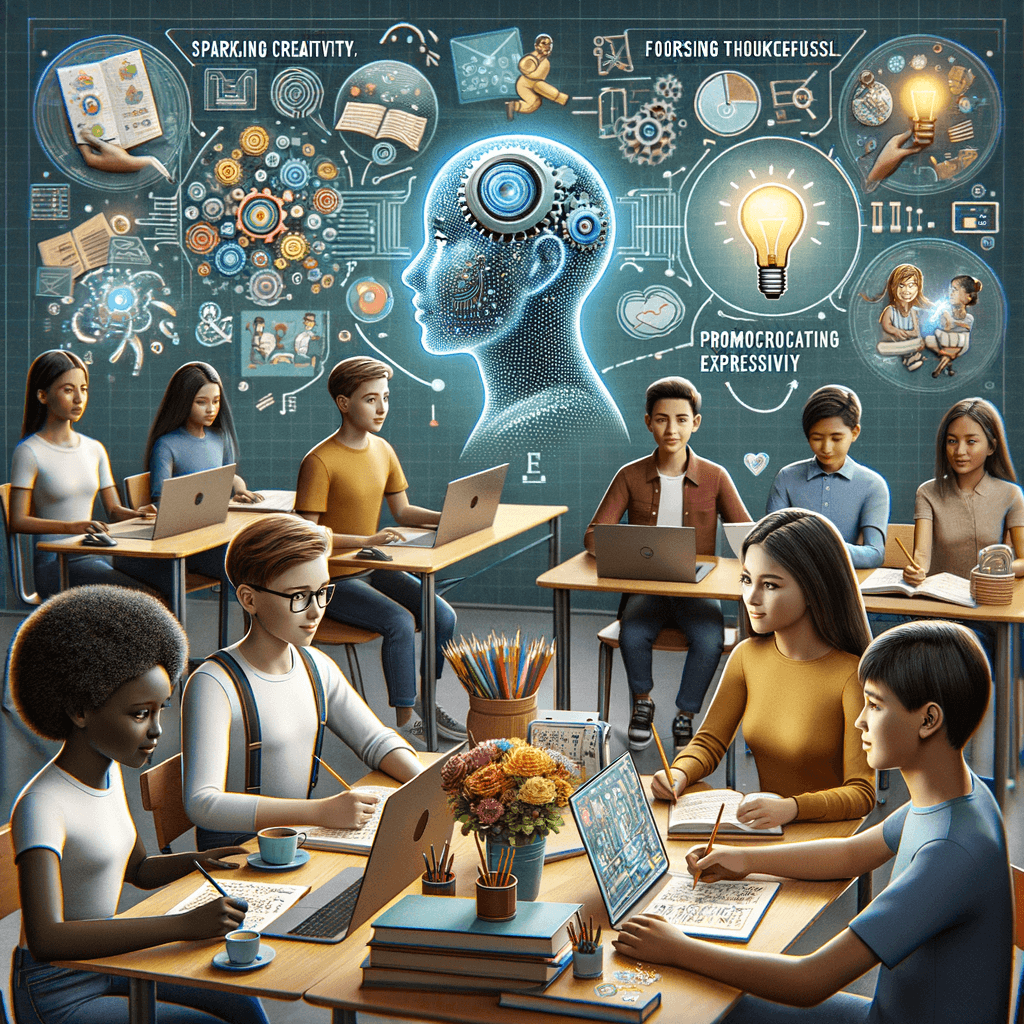
Visual teaching: the application of AI tools in teaching material design
Topic Overview:
Visualization is an important means to enhance students' interest in learning. This topic will introduce how to use AI tools to design attractive teaching materials, including presentations, posters, learning sheets and multimedia courseware, to make classroom content more vivid and visually impactful.
Applicable AI tools:
Tools included in the course include AI assistants that help teachers design visual teaching materials. These assistants can automatically generate briefings, design posters, and provide a variety of templates and multimedia elements to help teachers easily create professional-level teaching resources.
Application scenarios:
- Teaching material design: Easily design professional-level teaching resources.
- Visual Learning: Use images, videos, and animations to enhance students’ learning experience.
- Student Projects: Guide students to use presentation tools to showcase their learning outcomes.
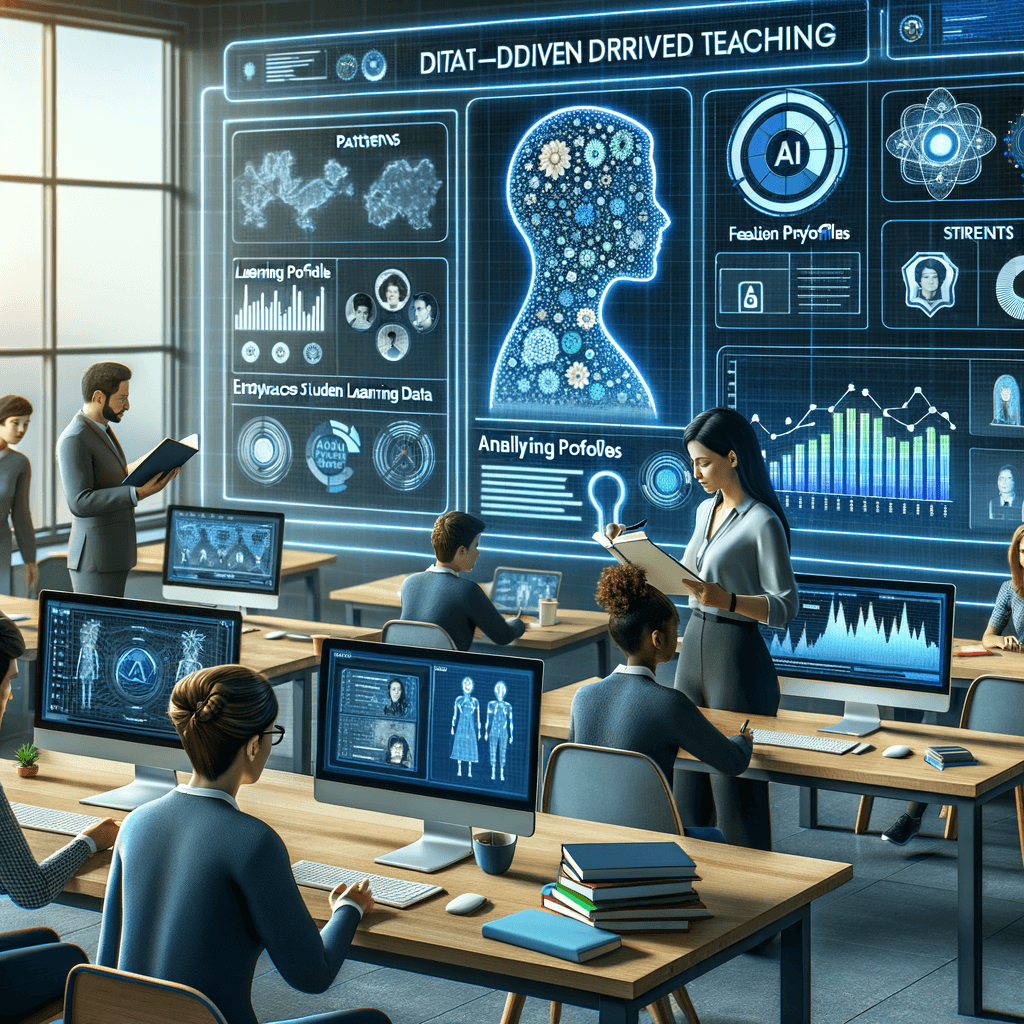
AI Art and Creativity: Inspiring Creativity in the Classroom
Topic Overview:
AI tools can not only enhance academic teaching, but also inspire art and creative classrooms. This topic will introduce how to use AI to generate artwork, music, and 3D models to help teachers design creative classroom activities and enhance students’ artistic expression and creativity.
Applicable AI tools:
The course will introduce a series of AI tools focused on generating artwork and music. These tools support the creation of illustrations, music backgrounds, and 3D models, and provide a variety of style options to inspire students' creative thinking.
Application scenarios:
- Interdisciplinary learning: Designing multisensory classrooms combining history, art, and science.
- Student Creations: Inspire students to create illustrations, music or 3D models.
- Classroom interaction: Use artwork to stimulate students’ imagination and participation.

Application of AI tools in teaching evaluation
Topic Overview:
This topic focuses on how to use AI tools for data analysis and automated evaluation to help teachers quickly detect the originality of student assignments, analyze student performance, and provide personalized feedback, further improving teaching efficiency and evaluation fairness.
Applicable AI tools:
The course introduces tools for data analysis and content detection that support automated grading, plagiarism detection, and the generation of detailed student performance reports.
Application scenarios:
- Homework management: quickly correct essays and detect plagiarism or AI-generated content.
- Performance Analysis: Generate student performance reports based on data.
- Classroom Recording: Use AI to record classroom discussions for easy summary and feedback.

Efficient information search and topic research
Topic Overview:
This topic focuses on how to use AI tools to quickly search for information, integrate data and conduct topic research. Through intelligent search and data analysis, teachers can efficiently extract key content, build systematic research plans, and improve lesson preparation efficiency and research depth.
Applicable AI tools:
The course will introduce some tools that can perform intelligent search, data integration and content detection. These tools support automatic generation of summaries, knowledge graphs and data reports, and provide source credibility verification functions.
Application scenarios:
- Classroom preparation: Quickly obtain background information on a topic and generate a key summary.
- Research topics: Integrate multidisciplinary information for designing interdisciplinary teaching activities.
- Academic Support: Search academic literature and extract data to support teacher research and curriculum design.
- Student guidance: Guide students to use AI tools to complete topic research and report writing.

AI Ethics: Challenges for Primary and Secondary Education
Artificial intelligence (AI) is penetrating into every aspect of our lives at an alarming rate, from online shopping to medical diagnosis, from autonomous driving to artistic creation, the impact of AI is everywhere. This transformative force has also profoundly affected the field of education, bringing unprecedented opportunities and challenges to primary and secondary education. How to guide students to use AI tools correctly, establish correct AI ethics, and train them to become responsible AI citizens is an important issue facing every primary and secondary school teacher.
Vinci AI provides AI ethics teacher and student training, providing a wealth of teaching strategies and practical cases to help teachers cope with the challenges of this era.
Course topics include:
- AI ethics concepts and importance
- Analysis of international AI ethical principles
- AI data privacy and security
- Algorithmic bias and fairness
- The impact of AI technology on society
- AI transparency and explainability
- AI challenges and opportunities for employment
- Student AI tool usage guide
- Critical thinking on AI-generated content
- Interdisciplinary AI education practice methods
Main Tutor Qualifications

Anthony Chan
Anthony Chan is an expert in artificial intelligence research with a Ph.D. in Mathematics, specializing in the application of AI in the healthcare field. This expert has published numerous papers in the fields of mathematics and artificial intelligence, with research findings featured in top international academic journals. Dr. Chan has been invited to prestigious international institutions to exchange ideas and present research findings. Additionally, he has extensive teaching experience, having served as a mentor for the Mathematics Talent Nurturing Program at the Chinese University of Hong Kong, nurturing the next generation of mathematicians.

Benny Lam
Benny Lam is a seasoned professional with over 30 years of experience in the IT and AI software development field. He has served as a project manager for multiple large-scale IT vendors and government departments, as well as a team leader and chief consultant. He possesses in-depth expertise in artificial intelligence, digital transformation, blockchain, logistics and supply chain management, cloud development, and financial technology. Additionally, he holds a Master's degree in Parallel Computing from the University of Warwick and has studied Mathematics at the Hong Kong Baptist University. His comprehensive technical skills and profound knowledge of AI make him a leader in the field.

Danny Chan
Danny is a lecturer at the University of Hong Kong with extensive experience in financial risk management, information technology, and data science. He has also served as an IT manager for over ten years. As an IT practitioner, he currently works as a consultant and trainer at a big data consulting service company. Additionally, he specializes in cloud solutions, big data technologies, data mining, and machine learning. Mr. Chan holds a Bachelor's degree in Mathematics from the Chinese University of Hong Kong, as well as a Master's degree in Risk Management Science from the Chinese University of Hong Kong, a Master's degree in Business Quantitative Analysis from the City University of Hong Kong, and a Master's degree in Industrial Logistics Systems from the Hong Kong Polytechnic University.
Here are some of the schools and organizations they have previously served
Hong Kong Education City
Hong Kong Metropolitan University
Education University of Hong Kong
Oxbridge International School
Kingston International School
Cheung Chu Shan English Secondary School
Salesian English School
Tak Ai Secondary School
Po Leung Kuk Ho Yin Tong Secondary School
Tung Wah Group of Hospitals Fung Wong Fung Ting Secondary School
catholic wuhua middle school
Lize Middle School
Sister Delia Memorial School
Qingshan Catholic Primary School
Po Leung Kuk Lam Man Chan English Primary School
Po Leung Kuk Luk Hing Too Primary School
Po Leung Kuk Tin Ka Ping Primary School
Sir Kadoorie Government Primary School
Ping Shek Catholic Primary School
Shau Kei Wan Government Primary School
Tai O Primary School
Pok Oi Hospital Prime Minister's Association Liang Province School
POH 80th Anniversary Tang Ying Hei College
Buddhist Ye Jinan Secondary School
Yu Chun Keung Memorial Secondary School
Bishop John White Anglican Secondary School
Pat Heung Rural Committee Charity Secondary School
St. Peter's Secondary School
holy family school
Hong Kong Red Cross Hospital School
HK01 Summer AI Summer Camp 2022
Conducted artificial intelligence painting workshops for 30 primary schools
Youth Association Youth Center (Hung Hung Kiu)
Children's Club
Customer acceptance
d
"Our class includes some students with special educational needs (SEN), but our instructor is very patient in teaching and manages the classroom well. In general, students who are taught STEAM subjects don't usually show much response, but after observing several sessions, I noticed that the students frequently ask questions during class. The primary focus of the class is teaching AI, which can be challenging for elementary school students to grasp. However, the instructor uses examples that are relatable to daily life, so most of the students understand the workshop content."
Kevin Chung
Hong Kong Youth Association - Hung Shui Kiu Youth Centre SecretaryExample Title
The Vinci AI Wisdom AI Painting Course provides primary 5-6 grade students with a learning experience that integrates creativity and technology. The course uses professional painting software and AI technology to creatively produce lively and interesting artworks, cultivating students' creativity and skills. At the same time, the course helps students understand basic AI concepts and experience the impact of technology on art. Through exploration, sharing works, students' level of art learning is improved.
Teacher You
Po Leung Kuk Luk Hing Too Primary SchoolThe AI art creation workshop taught students to design English storybook covers through the OpenArt platform. This learning approach that combines creativity and technology can stimulate students' imagination and creativity. By using AI drawing tools to present "imagery" and even "ambience" through "metaphor", it is an inspirational and practical teaching activity.
Director Ma
Dabu District Primary SchoolThe instructors wholeheartedly teach students about AI knowledge, making the content relatable to real-life scenarios. The instructors also establish a friendly and enjoyable rapport with the students. The majority of the students are able to grasp the workshop content and benefit greatly from it.
Teacher Yip
St. Peter's Secondary SchoolExample Title
This academic year, our school's Chinese teachers participated in a series of five workshops titled 'How AI Can Promote Interdisciplinary and Chinese Language Teaching in Primary Schools' organized by Vinci AI. The teachers' feedback was positive, with the course content focusing equally on theory and practice, being highly practical and applicable for immediate use in unit inquiry lessons and Chinese language teaching. By utilizing AI as a teaching tool, it can enhance the effectiveness of teaching and learning.
Dr. Tang Shufen
Vice Principal of Kingston International SchoolExample Title
The company provides excellent STEAM education. The mentors are professional and the AI curriculum is thorough. With a teaching approach that is meticulous, patient and fully meets the needs of secondary schools.
Teacher Yang
Head of PLK Ho Yin Tung Secondary SchoolArrange On-Site Training
Contact our consultants
Vinci AI offers on-site training services, as well as in-school lectures and workshops for teacher professional development. We welcome you to contact our expert consultants to discuss and arrange suitable topics and formats that meet your needs.

